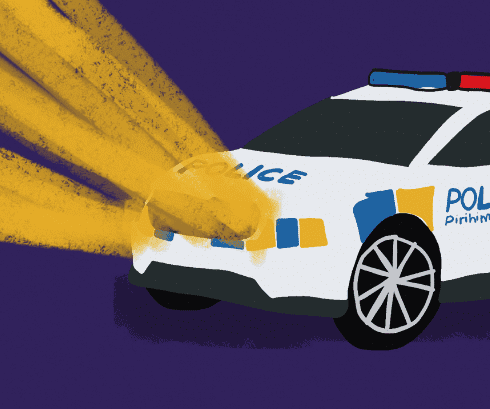Ties that Bind
“Whatever you bind on earth will be bound in heaven,” – Matthew 16:19
What do we actually know about private schools? Sometimes they wear ties, sometimes they have tennis courts, oh and it turns out they don’t give a shit about the laws we hold true on earth or basic human rights. So we sent Hoata down another rabbit hole… because he loves convoluted theories about random shit.
Whether you’re a local of the mighty Tauranga or not, there’s a chance you’d have heard some of the murmurings happening in recent times as Bethlehem College has proven, once again, the absolute chaos that is Christian Education. If you’re one of the lucky ones who’ve skipped over this vital news, here’s the skinny.
‘Bethlehem College is challenging their rights to religious freedom in adherence to their agreed upon “Statement of belief’”, or more simply put ‘Bethlehem College is homophobic, transphobic and just down-right cunts’. Cue the complete anarchy that has ensued post the ‘Statement of Belief’ analysis from the all-seeing eye of God – or just anyone with an internet connection really. Troubled parents of the more sjw-raised children had delved a little too deeply into private school fine-print, discovering the line “Marriage is an institution created by God in which one man and one woman enter into an exclusive relationship intended for life, and that marriage is the only form of partnership approved by God for sexual relations”. See, I don’t know about you, but I couldn’t care less about the homophobia but rather why a school that promotes abstinence and chastain, cares about including a statement re marriage and fucking.
So, here’s what I’m trying to illuminate and achieve. There needs to be awareness of the disparities in equal opportunity and further information into where private schools create elitism and selective communities within the confines of their institutions. I’ll attempt to unpack statements of belief and also highlight where there’s places to fix some of the less desirable elements of private schooling.
Where to begin
I wanted to start by discussing some of the inner workings of privatised schooling systems, how they fare compared to your general public school, and what that means for acceptance and codes of conducts. One of the easier ways of offering this battle up to you, would be to just list them side by side, showing you differences between a Statement of Belief and general CoC/mission statement offered by a BOT.
| The Unity of the Father, the Son and the Holy Spirit in the Godhead.
The Sovereignty of God in creation, revelation, redemption and final judgement. The divine inspiration and trustworthiness of Holy Scripture, as originally given, and its supreme authority in all matters of faith, practice and conduct. The universal sinfulness and guilt of human nature since the fall, rendering man subject to God’s judgement and condemnation. Redemption from the guilt, penalty, pollution and the power of sin only through the sacrificial death of the Lord Jesus Christ, the incarnate Son of God. The working of the Holy Spirit in the individual’s life to bring about justification and reconciliation to God by repentance and faith in Christ alone. The Deity and Humanity of Jesus Christ; His bodily resurrection from the dead; His ascension; His mediatorial work and His personal return in power and glory. The indwelling and sanctifying work of the Holy Spirit in the believer, developing each individual in their personal ministry to the Lord. The One, Holy, Universal Church, which is the Body of Christ, to which all true believers belong and in which they are united through the Holy Spirit; and the importance of each local church in the life of the individual. The bodily resurrection of the dead and life everlasting. Christ’s Commission to His people as expressed in Matthew 28:18-20. The honour due to the Jewish people and the land of Israel in the light of Scripture, typically, Isaiah 54:10; Jeremiah 32:37-42; Romans 11:28-29. |
BLANK High School affirms and values achievement by individuals and groups in terms of both participation in, and success at, all that we offer as a School.
We affirm the fundamental right of every student to learn to the best of their ability and potential in an environment that is positive, safe, friendly, caring and supportive of young people. We will encourage students to take pride in their School and their appearance through recognition of self identity, family and culture. We will expect students to acknowledge and respect the rights of each individual and the collective rights of all students and staff who make up our School. |
Making a comparison between a statement of belief and a mission statement may seem like a moot point, but remember that both of these are to be agreed upon as a REQUIREMENT before admission is granted. Why this matters is simply down to subject matter. Mission statements stay relatively similar as their intent always has success and the students well-being as their priority. No one is denying that student well-being isn’t the first priority for private schools, in fact I’m certain there’s a major responsibility of care in all education providers, but their duty of care seems to fall upon the chosen few based on their selective committees and decisions to allow or disallow specific pupils.
A Couply Disparities
An important point that should be made is that Mission statements are prevalent in a large majority of schooling codes of conduct, with the intent of success being plastered as often as possible. This isn’t me trying to mitigate the intent of each private institution, but rather to highlight disparities in education offered through selective committees with an admission checklist a mile long.
“In 2017, the Tāmaki school roll boasted the most ethnically diverse region in New Zealand, but its schools, on average, did not reflect this diversity. In general, as a region’s ethnic diversity increases, schools become less diverse compared to the overall diversity of the region’s school population.” (http://www.educationcounts.govt.nz) Data collected through polling in 2017 suggests there’s a ethnic disparity between regions as selective committees allow entrance based on a myriad of suggested traits. A local Hamilton Christian school boasts an extensive 8 levels of priority when taking into account an acceptance into their institution – an important distinction being their commitment to the Anglican faith and how involved they are in their community.
Priority System
First Priority
- A girl who is a baptised Anglican and is active in an Anglican Parish.
Second Priority
- A girl who is actively involved in an Anglican Parish.
Third Priority
- A girl who is a baptised Anglican.
Fourth Priority
- Sister of a current or past student.
I think you get the idea right?
There’s a large part of me that would love to delve into the tithe/fees breakdown, looking at the cost benefit of running a religion based private school – but the can of worms isn’t nearly worth the battle. To just generally break it down, tithe is an offering at a standard 10% of income to your local church. Say you were then wanting to put your child through Private Christian high-schooling, you’re looking at an average of $24,000.00 Per Annum with a whopping total of $120,000.00 over the duration of their 5 year tenure*. But you’re also paying tithe to attend their church? That’s not to imply you’d attend the same church/parish of the institution your children attend, though it is interesting to think about, no?
*all stats received through fees breakdowns through individual providers.
An Attempted Interview
In preparation for this piece, I did reach out to several sources in the hope that I’d get some formative feedback in an attempt to break down their systems, making it understandable to someone not being overcome by faith-based practices or influenced by organised religion. Of the several sources, they included Larne Edmeades (Bethlehem College Principal), Jason Speedy (Southwell School Principal) and BOT chair John Macaskill-Smith (St. Peters Cambridge). All requests for communication were met with silence or a simple ‘No’ in this case. But, I was able to receive answers to my minor questions through a member of an unnamed BOT for an anonymous private school.
Ētita note: While I did have some answers from the aforementioned Chairperson, their answers were redacted very last minute. As a means of proving my point, the very brief answers have been blacked out but left to show the length and simplicity of an answer prior to silencing themselves.
What are your thoughts, if any, towards the enforcement of the ‘Statement of Belief’ as sanctioned by the Board of Trustees at Bethlehem College?
Since redacted
Does your institution adhere to any strict guidelines that aren’t cohesive with teachings given by the curriculum provided by NZQA?
Since redacted
Do you, or any of your board, believe that marriage is to be held between a man and a woman as joined by a priest or any man of worship?
Since redacted
As an institution, do you believe that the fundamental right to education should be judged according to the values and beliefs as stipulated by a small board of religiously-inclined educators – furthermore do you believe your teaching practices to be in line with modern needs for growth in education?
Since redacted
The answers had provided a calculated response to what I’d intended to be an informative view into religion-based education, but we make do with what we are given.
Get to the Point
Private schooling makes up 31,142 of the 826,552 currently enrolled students in Aotearoa. While this may not seem to be a large percentage of tauira, it’s an important number as you delve into the less glitzy side of education. Numbers based on money, orientation, and the will to uphold values set through hundreds of years of information passed from man to man.
There’s no avert answer to fixing privatised learning, nor do I think I can solve what it means to be involved in private school politics, but there does need to be an upheaval of education providers restricting access to a fundamental right. If I was to offer advice as a failing educator and lover of all things broken, I would say that allowing less-restricted access to higher education is a must. You can achieve great heights through public schooling (shout out to my Fraser High Alumni), but there’s a certain sparkle to receiving education through a private system – not that I will ever regret my time at a public school. Just make that shit easier for those with a desire for it aye. Sorry there’s no conclusion to this story homies.





